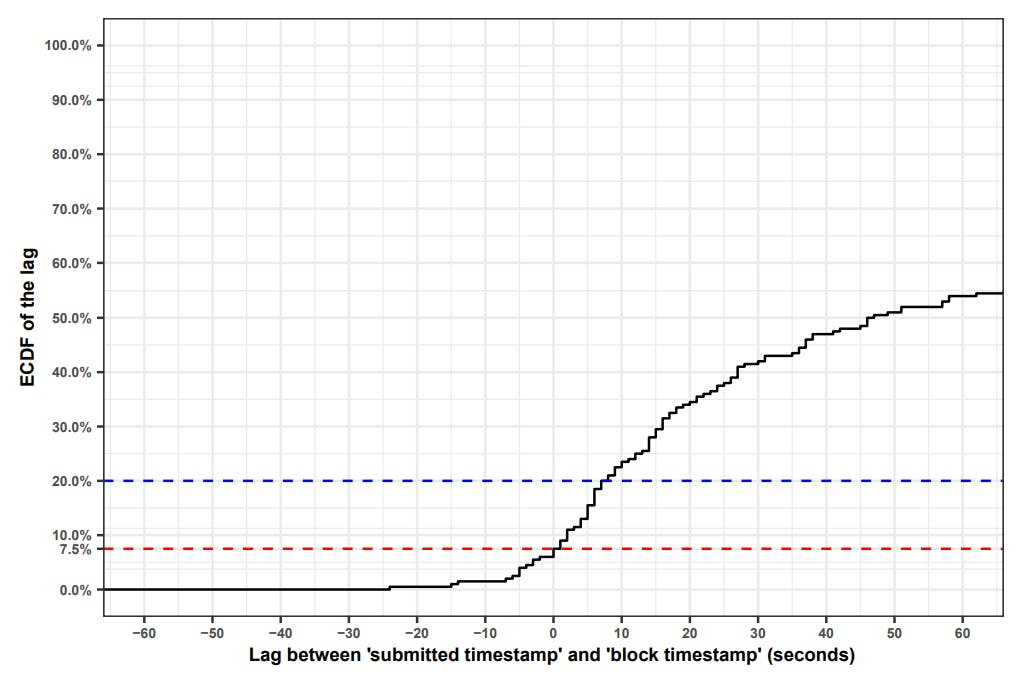
"Evaluating the accuracy of blockchain-recorded block timestamps reveals significant inaccuracies due to the decentralized nature of mining where each miner maintains their own system clock."
"Our analysis deduces that while block timestamps provide foundational transaction context, they are often misaligned and necessitate a methodology for retrieving more reliable timing information."
"Transaction processing times in Ethereum exhibit variability, demonstrating that user reliance on estimated times from Etherscan and EthGasStation can often lead to misinformed expectations."
"The study challenges existing models of transaction time estimation by considering real-time block dynamics, emphasizing the inconsistencies that arise from peer-to-peer data architecture."
The article delves into the intricacies of transaction processing in Ethereum, particularly focusing on the reliability of timestamps recorded in the blockchain. It identifies that these timestamps can be inaccurate due to the decentralized nature of the network, leading to discrepancies among miners' clocks. Through empirical evaluations, the study establishes that existing predictions on transaction times may mislead end-users. Furthermore, it suggests the necessity for improved models to derive more accurate processing time estimates, thereby enhancing user expectations and system reliability in Ethereum.
Read at Hackernoon
Unable to calculate read time
Collection
[
|
...
]